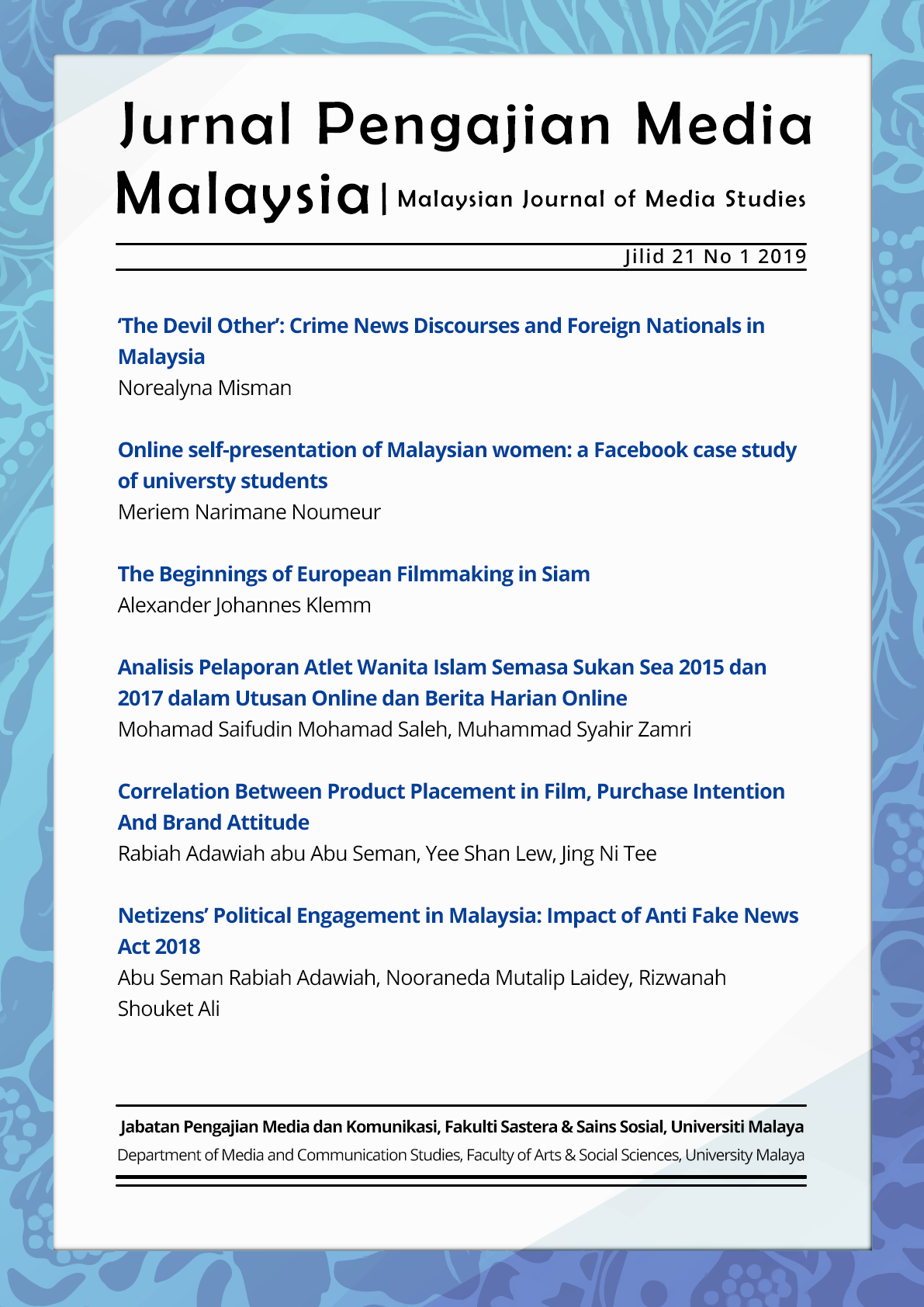Netizens’ Political Engagement in Malaysia: Impact of Anti Fake News Act 2018
DOI:
https://doi.org/10.22452/jpmm.vol21no1.6Keywords:
Self Control Theory, Fake News, Online Political Engagement, Anti-Fake News Act 2018, Theory of Planned Behaviour, MalaysiaAbstract
The 14th Malaysia General Elections (GE14) in 2018 witnessed a historic victory for the opposition party led by Tun Mahathir Mohamed against the 60 years government holding party; BN coalition. Concurrently, it also witnessed social media tools; WhatsApp and Facebook as the most dominant and effective messaging tools, but also a source of fake and unverified news; followed by blogs and other sources. Prior to the election, the Anti-Fake News Act 2018 had been enforced in April 2018 where any creation, offering, publishing, distribution or dissemination of fake news is a crime. This research explores the effect of Anti-Fake News Act 2018 on netizens' political engagement through Facebook and Whatsapp during the 14th Malaysia General Election 2018 with impulsivity and habitual conduct as moderators. Data has been collected from 556 participants through online survey based on a framework integrating Theory of Planned Behaviour (TPB) and Self Control Theory (SCT). Limited studies have tested the integration of TPB and SCT on knowledge about Anti-Fake News Act 2018 and political engagement. The findings of the study explain the influence of knowledge, impulsivity and habitual conduct on political engagement among Malaysian netizens through Facebook and Whatsapp during the GE14. Political engagement intensity has changed consequently after the Anti-Fake News Act 2018’s enforcement due to impulsivity. This study further adds to the literature in the area of online political participation and cyber law; uncovering the role of impulsivity and habitual conduct on netizens’ political engagement, suggesting the basis for future research in this phenomenon.
Downloads
Downloads
Published
How to Cite
Issue
Section
License
Copyright (c) 2019 Jurnal Pengajian Media Malaysia

This work is licensed under a Creative Commons Attribution 4.0 International License.






